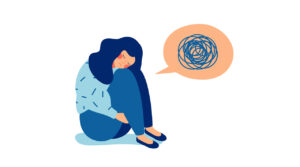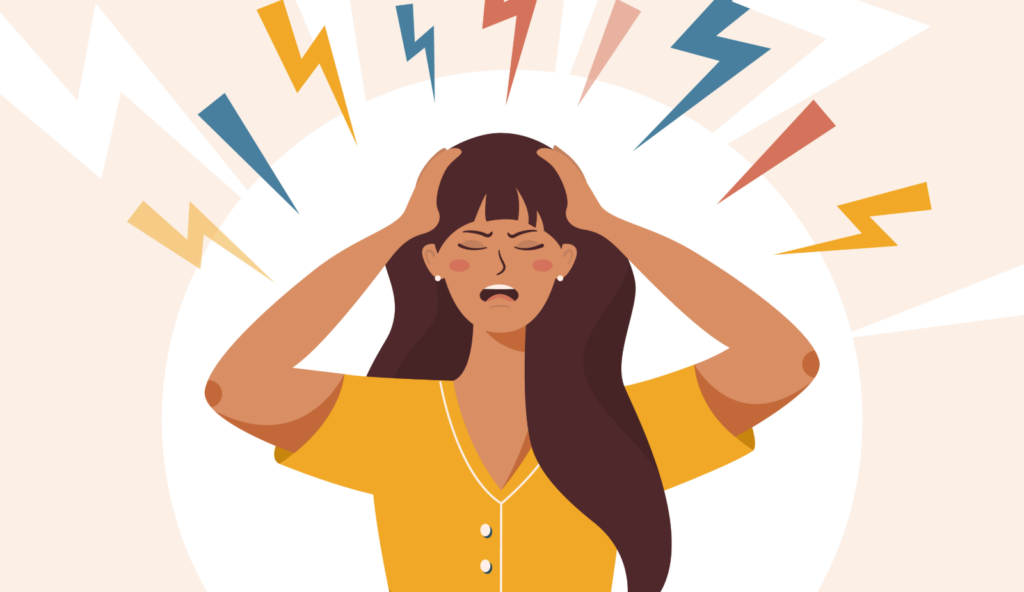Anxiety disorders are the most common mental illness in the whole world, affecting more than 40 million adults in the whole world who are aged 18 and older. If you are one of the millions of people who suffer from anxiety, you know how difficult it can be to manage your symptoms. In this blog post, we will discuss what anxiety is, the different types of anxiety disorders, and how to get help.
Contents
What Is Anxiety?

Anxiety is a normal emotion that we all experience at one point or another. It’s what we feel when we’re worried, nervous, or afraid about something. Anxiety is a natural stress response and can be helpful in some situations. It can motivate us to take action and help us cope with difficult situations.
However, for some people, anxiety can become so overwhelming that it interferes with their daily lives. When this happens, it’s called an anxiety disorder.
Anxiety disorders are the most common mental health disorders in the United States. According to the National Institute of Mental Health, about 18% of adults in the world live with an anxiety disorder. Also, anxiety disorders are twice as common in women as they are in men.
There are many different types of anxiety disorders, including:
- Generalized anxiety disorder (GAD)
- Obsessive-compulsive disorder (OCD)
- Panic disorder
- Post-traumatic stress disorder (PTSD)
- Social anxiety disorder
- Specific phobias
Reasons Why Someone Is Saying ” I Have Anxiety “

There are many reasons why someone might say “I have anxiety.” Here are some of the most common ones:
Explain Why They Feel The Way They Do
Anxiety can be a very confusing and frustrating emotion to experience. For many people, it can be helpful to talk to someone about what they’re going through. This can help them make sense of their feelings and start to develop a plan for managing their anxiety. Sometimes, just talking about anxiety can help lessen its effects. Also, many people find it helpful to read about anxiety and learn as much as they can about the condition. There may be many people in their life who don’t understand what they are going through.
Get Support From Others
For many people, anxiety can be a very isolating experience. They may feel like they’re the only ones going through it or that no one understands what they’re dealing with. This can lead to feelings of loneliness and despair. Talking to others about anxiety can help people feel less alone and give them a chance to share their experiences. It can also be helpful to connect with others who are dealing with similar issues. There are many online and offline support groups for people with anxiety disorders.
Let Others Know What They’re Going Through
Some people use “I have anxiety” as a way of warning others that they might need extra support or understanding. This can be helpful in situations where someone might need to take a step back or take a break. For example, someone might say “I have anxiety” before going into a meeting or social event. This can help the people around them be more understanding and accommodating.
When someone discloses their anxiety to others, it’s important to respect their privacy and boundaries. It’s also important to remember that everyone experiences anxiety differently. What works for one person might not work for another.
Warn Others About Their Behavior
Sometimes, people with anxiety disorders will say “I have anxiety” as a warning to others. This is because anxiety can cause some people to behave in ways that are unexpected or seemingly out of character. For example, someone with a social anxiety disorder might avoid eye contact or speaking in public, even if they’re normally outgoing. Or, someone with OCD might wash their hands excessively or avoid touching door handles.
It’s important to remember that these behaviors are not intentional and are often beyond the person’s control. If you see someone exhibiting these behaviors, try to be understanding and patient.
Raise Awareness
For many people, “I have anxiety” is a way of raising awareness about the condition. This can help break down the stigma that surrounds mental health conditions. When more people are open about their experiences with anxiety, it can help others feel more comfortable talking about their mental health. Making anxiety a part of the public conversation can also help destigmatize other mental health conditions.
Help Others Understand
One reason why someone might have anxiety is because of their environment. For example, if they live in a place with a lot of violence or natural disasters, they may be more likely to have anxiety. Also, if someone has a job that is high-stress or involves a lot of public speaking, they may be more likely to have anxiety. Genetics can also play a role in anxiety, as some people are simply more prone to it than others. Finally, trauma can lead to anxiety, especially if the person does not have adequate support to deal with the trauma.
Signs Why Someone Is Saying ” I Have Anxiety”

There are many signs when someone will say ” I have anxiety.” Some of the signs are:
Restlessness
One of the most common signs of anxiety is feeling restless. If you feel like you can’t sit still or focus on anything, it could be a sign that you’re anxious. Restlessness is also a sign of racing thoughts, which is a common symptom of anxiety.
Fatigue
Another sign of anxiety is feeling tired all the time, even if you’re getting enough sleep. Fatigue is different from regular tiredness because it’s hard to power through it. If you’re constantly feeling exhausted, it could be a sign that your anxiety is taking a toll on your body.
Irritability
Anxiety can also make you feel more irritable than usual. If you find yourself snapping at people or getting agitated easily, it could be a sign that you’re struggling with anxiety. Irritability is often caused by the stress and worry that come with anxiety.
Muscle Tension
Anxiety can cause physical symptoms, such as muscle tension. If you notice that your muscles are constantly tight or clenched, it could be a sign of anxiety. Muscle tension is often a result of the stress and worry that come with anxiety.
Headaches
Headaches are another physical symptom of anxiety. If you’re getting headaches more frequently, or if they’re more severe than usual, it could be a sign that your anxiety is causing physical problems.
Difficulty concentrating
Anxiety can make it difficult to concentrate on anything. If you’re having trouble focusing at work or school, it could be a sign that you’re struggling with anxiety. Difficulty concentrating is often caused by the racing thoughts and worry that come with anxiety.
Sleep problems
Anxiety can also cause sleep problems. If you’re having trouble falling asleep or staying asleep, it could be a sign that your anxiety is affecting your sleep. Sleep problems are often caused by the stress and worry that come with anxiety.
Conclusion
Anxiety is a real and serious problem. It can be debilitating, and make it hard to live a normal life. If you think you might have anxiety, or if you’re struggling with anxiety, please reach out for help. There are many resources available, and many people who want to help you. You don’t have to suffer alone.
Sometimes there’s no clear-cut answer or solution to anxiety, but that doesn’t mean it can’t be managed. With the right help, support, and treatment, most people with anxiety can live happy and fulfilling lives. So if you’re struggling, please don’t give up hope. Help is out there.
Hope this article was of help to you! If you are suffering from mental health disorders, you may seek help from Therapy Mantra. We have a team of highly trained and experienced therapists who can provide you with the tools and skills necessary for overcoming mental health disorders. Contact us today to schedule an online therapy or download our free Android or iOS app for more information.


